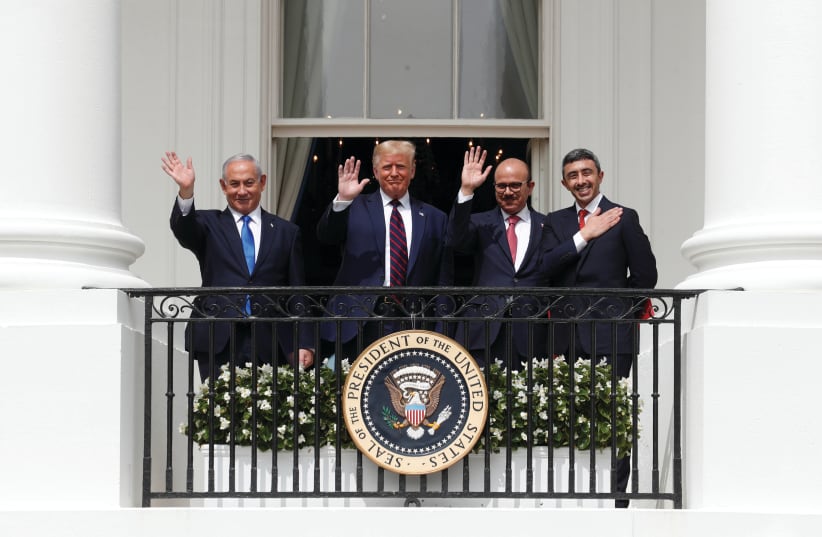Through this investment, the UAE ties its security and future to partnering with the United States. Its military now depends on US equipment and know-how. Its foreign policy goals in the region are consistent with ours: deterring and preventing Iran from obtain nuclear weapons, seeking a broader peace for Israelis and Palestinians, and promoting moderation and tolerance while combating terrorism and extremism.
This new order is best exemplified in the first Abraham Accord, a groundbreaking peace agreement that normalizes relations between Israel and the UAE. The months since have borne tangible and meaningful advances in a region where progress is usually measured over decades. In the short time since the Abraham Accord was signed on September 15, the UAE and Israel have announced more areas of dialogue and cooperation, including bilateral trade, direct airline flights, and cooperation on health, technology and other areas.
In addition, Bahrain, Sudan and Morocco followed the UAE’s lead in recognizing Israel; and more may do the same. Just this month, news broke that Israel’s prime minister met with the US secretary of state and Saudi crown prince in Riyadh. In my almost 30 years in Congress and as a former chair of the House Foreign Affairs Committee, I never saw this kind of progress in the Middle East and had sadly become resigned to the idea that I would not see it in my lifetime.
The Abraham Accord has received broad support from Republicans and Democrats alike. The arms package voted on this week included public support from Israel, something once thought unimaginable – even those who voted against it recognized that the UAE is one of America’s most steadfast allies. After all, the UAE is the lone Arab nation to fight alongside the United States in six military coalition actions over the last 25 years, including the current fight against ISIS.
Unfortunately, not all countries that claim to be US allies in the region are doing the same. Qatar and Turkey have grown closer to Iran, and they underwrite, both politically and financially, a form of political Islam that is extremist and violent. This includes embracing Iranian proxies, such as Hamas, which pervert a peaceful faith to destabilize the region. They also use state-propaganda – most notably Qatar’s Al Jazeera – to provide a platform for these groups and their views. I have long called for Al Jazeera to register under the US Foreign Agents Registration Act, and news reports indicate that in September the Department of Justice instructed AJ+, Al Jazeera’s massive US social media operation, to so register.
Turkey had been in line to get the same F-35 jets that now will go to the UAE, but Turkey turned its back on the United States and chose instead to cast its lot with the Russian military. When the United States imposed sanctions on Turkey in 2018, Qatar pumped more than $15 billion into Turkey with the express purpose of undermining US sanctions. Just last month, Qatari leaders went to Iran to pledge more trade and investment to help Iran offset US sanctions.
Thus, it is now clear who our real friends in the Middle East are and who are not. The United States needs to reciprocate that loyalty and remain steadfast with allies who share our policy objectives, who advance them not only in words but also deeds, and whose troops stand strong and fight alongside ours.
The writer represented Florida’s 27th District in Congress from 1989 to 2019 and served as chair of the House Foreign Affairs Committee and its Subcommittee on the Middle East and North Africa. She is now a senior adviser with the law firm Akin Gump, where she represents the government of the United Arab Emirates.
